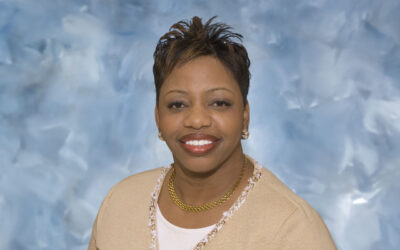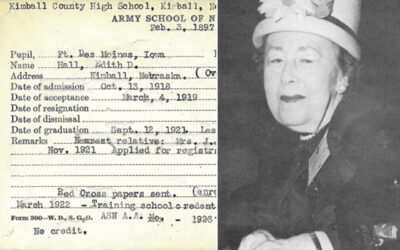
As the director of high reliability and patient safety at Ochsner Medical Center in New Orleans, Louisiana, it’s Kenesha Bradley’s job to know the ins and outs of her department, from the perspectives of patients and clinical staff, the better to drive favorable outcomes for each within the health system. Bradley works to promote evidence-based practices and to evaluate current processes as well as efforts undertaken to improve them. She helps to position her team to take advantage of opportunities to do better in ways that bring everyone along.
“As clinical nurse specialists, our job is being the change agents,” Bradley said. “Anybody knows that change is not always welcome and easy. It’s people management, trying to understand the bigger picture, and how to work it into actual work. It’s about recognizing opportunity and how you make those things happen.”
Bradley is into her 14th year at Ochsner, having begun as a floor nurse working overnight shifts in the medical-surgical unit. The hospital is a community facility within the Ochsner organization, which is the largest non-profit, academic, multi-specialty, healthcare delivery system in southeastern Louisiana. Even prior to the rollout of any recommendations for process improvement, Bradley spends a lot of time getting to know staff, onboarding new employees, developing a rapport with them once they’re on the floor, and helping them understand their roles within the system. Much of that work happens one-on-one, the better to help people to consider their experiences and their roles within the system prior to discussions of navigating change. For Bradley, delivering education and asking focused questions about diversity, equity, and inclusion (DEI) issues in the workplace, both for patients and staff, is among the most personally significant efforts in which she’s involved.
“I do a lot of talking with staff to understand their work and what it is to make change,” she said. “My biggest passion has been in health equity and our work with diversity and inclusion. There’s a lot of work we’re doing internally, [especially around] psychological safety, which has a lot to do with people’s comfort in speaking up and taking care of their patients without fear of harm or anything happening to them.”
Bradley has not only worked on such initiatives at Ochsner, but she’s also brought the lessons from her involvement in DEI issues there to a broader audience via her work with the Academy of Medical-Surgical Nurses (AMSN) and its DEI task force. From the hospital to the clinic, Bradley’s group has met with staff members from housekeeping to the C-suite, discussing their experience of navigating the system from provider and patient perspectives, and how free people feel to speak up when issues of concern arise.
“We talked to just about everyone in our hospital to understand where everybody is coming from,” Bradley said. “That is where my heart is, making sure we’re asking the right questions, making sure we’re not biased in our care, making sure people receive treatment in our facilities that’s equitable, and learning more about how our employees experience work in health care.”
“In med-surg nursing, I always saw opportunities when others said, ‘This is the way we do it; this is how it’s always been,’ in trying to understand the rationale in how this happens,” Bradley said. “I didn’t want to accept the status quo.”
Staffing needs are among the biggest concerns Bradley said have been identified for nurses working in the field. The availability of additional supports from additional hires has become particularly concerning amid the escalating acuity of patient needs in recent years. She believes there’s a disconnect between the work that’s required to deliver high-quality patient care and the number of health care professionals available to provide it.
“Staffing has been such a hardship, and I feel like nurses have been screaming to the rooftops for help,” Bradley said. “They’re trying to do the best with what they have, but I feel like sometimes with the burnout, we’re not setting people up for success. It has a lot to do with our ability to affect the things we need to.”
In her career, Bradley had long since done the work of learning what kind of path she would forge for herself in medicine. During her junior year at the University of Louisiana-Monroe, Bradley decided to complete an undergraduate biology degree, but re-routed from a pre-medicine track into a program that would allow her to complete a BSN from the University of South Alabama in Mobile, Alabama.
“I wanted to be able to take care of patients and be in medicine, but not necessarily be a doctor,” she said. “There are good providers out there, but what I was seeing wasn’t what I wanted to do. I felt like I was going to be at the mercy of whatever organization I was going to.”
“That’s how I ended up in nursing, but still wanting to make it better, help people with their outcomes,” Bradley said. “I knew I
wanted to do more, and I couldn’t just continue to work and not have that knowledge or education about how to make change and make things happen. I definitely saw the opportunities in health care to know more about the operations and the whys behind some of the decisions that may have been made on behalf of staff.”
“That was my driving force,” she said: “to want to make it better instead of complaining and wanting to go somewhere else. When I leave nursing, I want to leave it a little better than when I started.”
When she’s not working to help improve processes, performance and health outcomes at Ochsner, Bradley is a busy mother of three young children, including a set of three-year-old twins. Her self-care routine includes running, and she plans to tackle a marathon before her 40th birthday.










